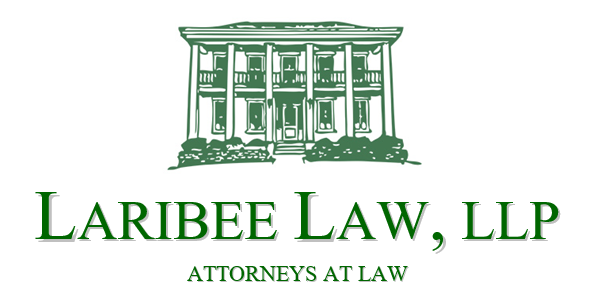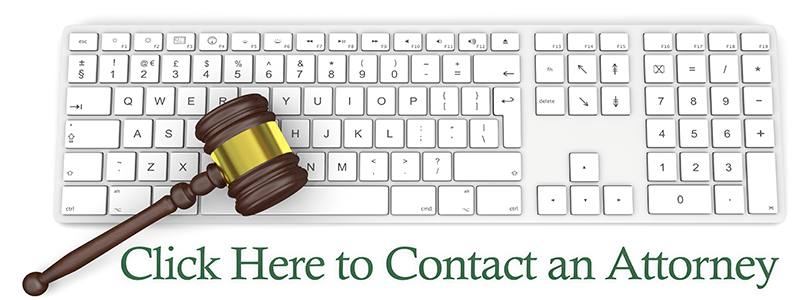Security Deposits: Avoid Disputes
Michael L. Laribee, Esq.
One of the most common landlord-tenant legal disputes involves the return of a security deposit at the end of the lease term. If landlords and tenants understand the law and their legal rights, they learn how to avoid these time-consuming and aggravating conflicts.
Landlords usually require tenants to pay a security deposit when leasing rental property. This protects the landlord if the tenant causes damage to the unit or vacates without paying rent. There is no limit in Ohio on how much security deposit a landlord may require for residential leases. However, if the landlord charges more than an amount equal to one month’s rent, he must pay the tenant interest calculated at five percent (5%) per annum every year on that amount in excess of the one month’s rent. This includes when a landlord requires the tenant to pay the last month’s rent in addition to the security deposit.
A tenant must return the rental unit to the landlord in substantially the same condition as when received. The landlord may apply the security deposit to the cost of repairs. However, a landlord is not entitled to damages caused by tenant’s normal wear and tear. Normal wear and tear occurs naturally through proper use of the rental unit and the appliances. Examples include: minor marks on walls, traffic patterns on carpet, faded or peeling paint, or loose door handles. Damages beyond normal wear and tear include: broken windows, torn or excessively stained carpeting, holes in walls, broken fixtures, missing or damaged hardware, and alterations made without the landlord’s permission.
The Ohio Landlord-Tenant Act provides that a tenant must do all of the following: keep the premises safe and sanitary; dispose of all garbage in a safe and sanitary manner; keep all plumbing fixtures as clean as their condition permits; use and operate all electrical and plumbing fixtures properly; comply with all housing, health, and safety codes; refrain from damaging the unit or appliances; and, maintain in good working order any appliances supplied by the landlord and required to be maintained by the tenant. Additional obligations in lease agreements which are inconsistent with Landlord-Tenant Act are not enforceable. For instance, a landlord cannot require the tenant to pay for carpet cleaning at the end of the lease term unless there is evidence of damage above ordinary wear and tear.
A landlord must provide the tenant with an itemized list of all deductions from a security deposit within thirty days of termination of the lease agreement and delivery of possession. If the landlord fails to do this, the tenant may recover from landlord the security deposit plus special damages equal to the amount wrongfully withheld and reasonable attorney fees. However, to be eligible for these special damages, a tenant must provide the landlord with a forwarding address. Any provision in a lease agreement which permits the landlord to retain a security deposit without itemization of actual damages caused by the tenant is unenforceable under Ohio law. Learn more by reading: Tenant/Landlord Rights and Obligations on Ohio
So, it is best practice for the tenant to do the following at the end of the lease term to avoid legal problems:
- make sure the unit is in good condition;
- clean and sweep floors and carpeting, wipe down counters and walls, and repair any damage which is beyond normal wear and tear;
- remove all personal property from the unit;
- document the condition of the property by video or photographs;
- arrange a walk-through of the unit with the landlord when keys are returned; and,
- provide the landlord with the forwarding address in writing by certified mail.
It is best practice for the landlord to the following:
- review the terms of the lease agreement with tenant and explain landlord’s expectations;
- conduct a walk-through with the tenant at the beginning of the lease to document the condition of the unit;
- have the tenant acknowledge the condition of the rental unit and appliances;
- pay interest on any security deposit in excess of one-month’s rent;
- explain final inspection procedures;
- remind the tenant to provide a forwarding address in writing;
- carefully document all damages caused by the tenant with video or photographs;
- keep receipts for all repairs; and,
- provide the tenant with an itemized list of all deductions from the security deposit within 30 days of lease termination.
Despite these precautions, disputes may still arise at the end of the lease. Court intervention may be necessary to determine proper deductions from a security deposit.
In that case, it is important to consult with an attorney to make sure your rights are protected, whether you are the tenant or landlord.
This article is intended to provide general information about real esate law. It is not intended to give legal advice. Readers are urged to seek advice from an attorney regarding their specific issues and rights.
Contact an attorney in Medina County, Ohio at Laribee Law, LLP, request more information about our legal services today.


